NAVYPEDIA
 Support the project with paypal
Support the project with paypal
Ships
| Names | Builders | Completed | Losses | Transfers | Discarded |
|---|---|---|---|---|---|
TB63 |
Herreshoff, Bristol, USA: TB63 |
1878: TB63 |
none |
none |
1907: TB63 |
Technical data
| Displacement normal, t | 15 |
|---|---|
| Displacement full, t | |
| Length, m | 18.3 |
| Breadth, m | 2.29 |
| Draught, m | |
| No of shafts | 1 |
| Machinery | 1 2-cyl HC, 1 water-tube boiler |
| Power, h. p. | |
| Max speed, kts | 16 |
| Fuel, t | coal |
| Endurance, nm(kts) | |
| Armament | as planned: 2 - 356 TC as completed: no armament |
| Complement | 7 |
Project history
The concept of purpose-built small TBs capable of being lifted by the davits of large ships seems to have originated with the Royal Navy; certainly more were built for that service than for any other. One TB carrier, Vulcan, was specially built to carry them, and for some years numbers of this type of boat were built. However, in the long run experience showed it was better to use the slower but much sturdier and more seaworthy steam pinnaces for this purpose, rather than the frail specially built Second Class boats.
This most unusual boat was unique in being the only foreign-built warship purchased for the Royal Navy in our period. She was brought over from the USA on speculation, and purchased as an experimental vessel through the intervention of the Director of Naval Construction, Nathaniel Barnaby. Her hull was unusual in having a wooden bottom and steel topsides, and the positioning of the propeller well forward and quite a distance below the hull was eccentric, whilst her most interesting feature of all was the coil boiler, a very temperamental device but very efficient and quick to raise steam when working. Though theoretically she was meant to carry two torpedoes it is doubtful whether she had the stability to carry any torpedo gear. She was only used for experiments and never put into service, unlike the Thornycroft boats against which she was tried, but she had her importance in bringing Thornycroft's attention to the possibility of developing the idea of the water-tube boiler.
Modernizations
None.
Naval service
No significant events.
 HOME
HOME FIGHTING SHIPS OF THE WORLD
FIGHTING SHIPS OF THE WORLD UNITED KINGDOM
UNITED KINGDOM TORPEDO SHIPS
TORPEDO SHIPS TB63 torpedo boat (1, 1878)
TB63 torpedo boat (1, 1878)
